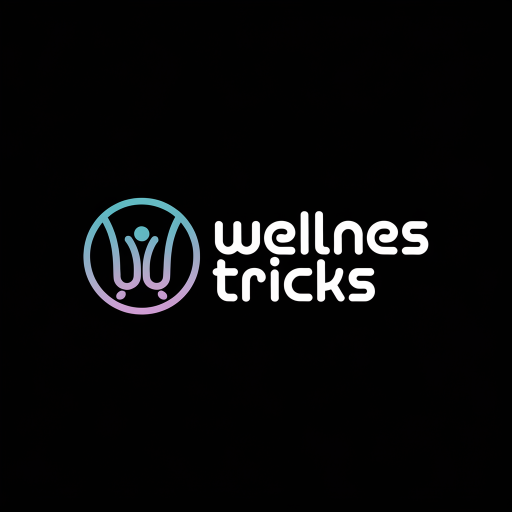Natural Remedies Doctors Don’t Always Mention
Many people overlook natural remedies that can complement conventional treatments. Simple options like herbal teas or essential oils can offer effective support for various health concerns. You might find that incorporating fermented foods or adaptogens into your routine not only boosts your well-being but also enhances your overall quality of life. Exploring these alternatives could reveal surprising benefits that your doctor might not mention. What other holistic approaches could improve your health?
Key Takeaways
- Herbal teas, like ginger and chamomile, can aid digestion and promote relaxation, enhancing overall well-being.
- Essential oils, such as lavender and tea tree, provide natural solutions for anxiety and skin issues when properly diluted.
- Fermented foods rich in probiotics support gut health, improve digestion, and boost the immune system.
- Honey’s antibacterial and soothing properties can help with sore throats and promote wound healing.
- Adaptogens like ashwagandha can reduce stress and improve sleep quality, making them valuable natural remedies.
Herbal Teas for Digestive Health
Herbal teas can be a soothing and effective way to support your digestive health.
Many natural health secrets lie within these flavorful brews.
For instance, peppermint tea can help relieve bloating and gas, while ginger tea aids in digestion and can alleviate nausea.
Chamomile tea not only calms your mind but also relaxes the muscles in your digestive tract.
Additionally, fennel tea may reduce symptoms of irritable bowel syndrome.
By incorporating these herbal options into your routine, you’re not just enjoying a warm drink; you’re also promoting a healthier gut. Furthermore, drinking herbal teas can lead to improved digestion, enhancing your overall well-being.
The Power of Essential Oils
Have you ever wondered how a few drops of essential oils can transform your well-being? These concentrated plant extracts pack a powerful punch, offering benefits from relaxation to pain relief.
Lavender oil, for example, can help reduce anxiety and improve sleep quality. Tea tree oil boasts antibacterial properties, making it great for skin issues. Additionally, certain essential oils, like natural oils, can be incredibly beneficial for skincare when used correctly.
You can easily incorporate essential oils into your daily routine through diffusers, topical applications, or baths. Just remember to dilute them properly to avoid irritation.
With their rich history and growing scientific support, essential oils might just be the natural remedy you’ve been searching for!
Benefits of Fermented Foods
Fermented foods offer a wealth of benefits that can enhance your overall health.
They’re packed with probiotics, which promote a healthy gut microbiome, improving digestion and boosting your immune system.
Eating foods like yogurt, sauerkraut, and kefir can help reduce inflammation and may even improve mental health by influencing your gut-brain connection.
Additionally, fermentation increases nutrient availability, allowing your body to absorb vitamins and minerals more effectively.
Regularly incorporating these foods into your diet can lead to better heart health, weight management, and even improved skin conditions.
One of my favorite gut-friendly snacks is a specific gut-friendly snack, which has significantly contributed to my digestive health.
Healing Properties of Honey
Honey isn’t just a sweet treat; it’s packed with impressive healing properties.
Its natural antibacterial benefits can help fight infections, while a spoonful can soothe a sore throat like nothing else. Additionally, honey has been shown to boost immunity by providing essential antioxidants that support the body’s defense against illness.
Antibacterial Benefits of Honey
Why is honey often hailed as a natural healer? Its impressive antibacterial properties make it a powerful ally against infections. Honey contains hydrogen peroxide, which helps kill harmful bacteria while promoting healing.
| Honey Benefits | Mechanism |
|---|---|
| Antimicrobial Action | Inhibits bacterial growth |
| Wound Healing Properties | Stimulates tissue regeneration |
| Moisture Retention | Prevents scab formation |
Using honey in your first aid routine can speed up recovery and reduce the risk of infection. Next time you need a natural remedy, consider reaching for this golden elixir!
Soothing Sore Throats
When you’re feeling the scratchy discomfort of a sore throat, honey can be a soothing remedy. Its natural antibacterial properties help fight infection, while its thick consistency coats your throat, providing immediate relief.
Research shows that honey can reduce inflammation and cough, making it a go-to choice for many.
You can mix it with warm water or herbal tea for added benefits. Just one to two tablespoons can ease your symptoms and promote healing.
Adaptogens for Stress Relief
In today’s fast-paced world, stress has become an unwelcome companion for many, but adaptogens offer a natural way to help you cope.
These herbs, like ashwagandha and rhodiola, can enhance your body’s resilience to stress.
Research shows they may lower cortisol levels, improve mood, and boost energy.
Incorporating adaptogens into your daily routine—whether through supplements, teas, or powders—might enhance your mental clarity and emotional stability.
Always consult with a healthcare provider before starting any new supplement regimen, especially if you’re on medication.
Embrace adaptogens, and you might find a more balanced approach to managing stress. Additionally, many transformative herbs have been shown to support overall well-being and can complement your stress relief efforts.
Natural Remedies for Sleep Disorders
Balancing stress is often key to achieving a good night’s sleep, and many natural remedies can help tackle sleep disorders.
Consider incorporating magnesium-rich foods like spinach or almonds into your diet, as magnesium promotes relaxation.
Herbal teas, such as chamomile and valerian root, have calming properties that encourage sleepiness.
Establishing a consistent bedtime routine can signal your body that it’s time to wind down.
Additionally, reducing screen time before bed helps minimize blue light exposure, which can disrupt your circadian rhythm.
To further enhance your sleep quality, try practicing a breathing technique that can help calm your mind and body before bed.
The Role of Mindfulness and Meditation
Mindfulness and meditation play a crucial role in managing stress and improving overall well-being. By focusing your attention on the present moment, you can reduce anxiety and enhance emotional regulation.
Research shows that regular practice can lower cortisol levels, promoting relaxation and improving sleep quality.
Incorporating just a few minutes of mindfulness into your daily routine can lead to significant benefits, including increased focus and decreased negative thoughts.
Try guided meditations or deep-breathing exercises to start.

